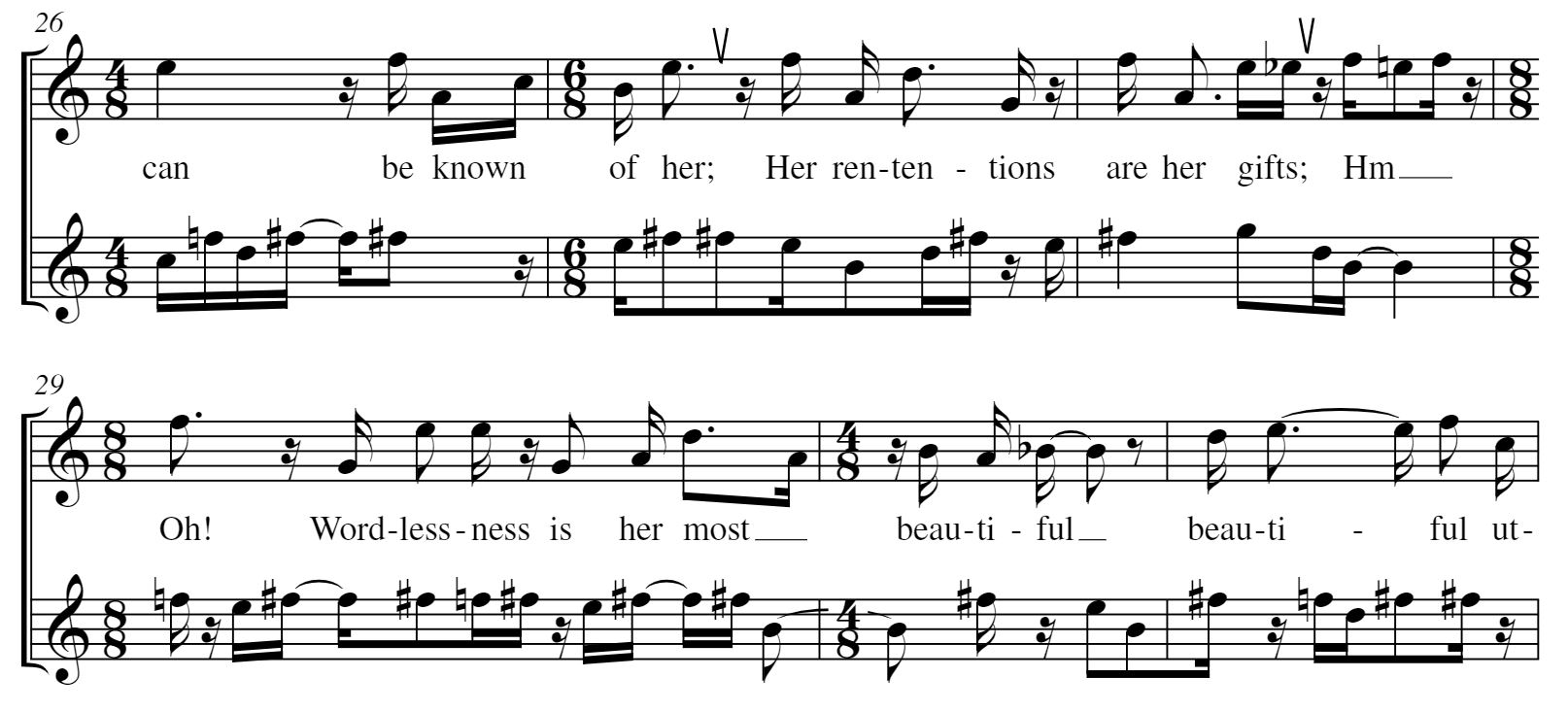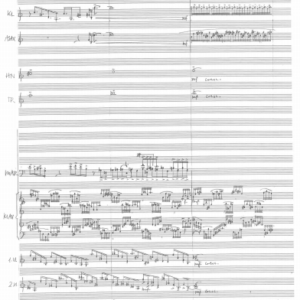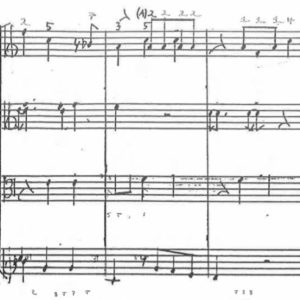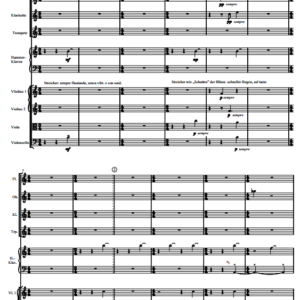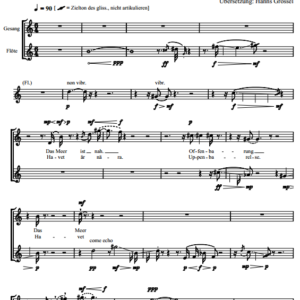Beschreibung
The Paradoxes of Love
für Sopran und Sopr.Sax. (Text: Hadewijch)
Text: Hadewijch (13.Jhdt.)
„What is sweetest in love is her tempestousness;her deepest abyss is her most beautiful form;
to loose ones way in her is to touch her close at hand;
to die of hunger for her is to feed and taste;
her despair is assurance;
her sorest wounding is all curing;
to waste away for her sake is to be in repose;
her hiding is finding at all hours;
to languish for her sake is to be in good health;
her concealment reveals what can be known of her;
her retentions are her gifts;
wordlessness is her most beautiful utterance;
emprisonment by her is total release;
her sorest blow is her sweetest consolation;
her ruthless robbery is great profit;
her withdrawal is approach;
her deepest silence is her sublime song;
her greatest wrath is her dearest thanks;
her greatest thread is pure fidelity;
her sadness is the allevation of all pain.
We can say more about Love:
her wealth is her lack of everything;
her truest fidelity brings about our fall;
her highest being drowns us in the depths;
her great wealth bestows pauperism;
her largesse proves to be our bankruptcy;
her tender care enlarges our wounds;
association with her brings death over and over;
her table is hunger; her knowledge is error;
seduction is the custom of her school;
encounters with her are cruel storms;
rest in her is in the unreachable;
her revelation is the total hiding of herself;
her gifts besides are thieveries;
her pronnses are all seductions;
her adomments are all undressing;
her thruth is all deception;
to many her assurance seems to lie –
this is ihe witness what can be truly born
at any moment by me and many others
to whom Love has often shown
wonders by which we were mocked,
Imagining we possessed what she kept back for herself.
After she first played these tricks on me,
and I considered all her methods,
I went to work in an wholly different way:
by her threats and her promises
I was no longer deceived.
I will belong to her, whatever she may be,
gracious or merciless to me it is all one!“
Das Tonmaterial des Stückes besteht aus den in Töne übersetzten vierzig Begriffen (in deutscher Übersetzung bzw.französischem Original) aus dem Buch „Fragmente einer Sprache der Liebe“ von Roland Barthes. Der gesungene Text ist die englische Fassung eines Gedichtes von Hadewijch. Sie lebte im 13. Jahrhundert als Begine in Flandern.
Ensemble Accroche Note
Françoise Kubler, soprano / Armand Angster, clarinette
Sheva Tehoval, Sopran/ Magdalena Łapaj, Sopransax
